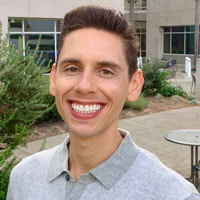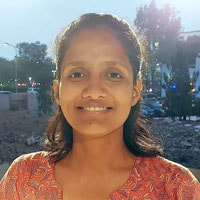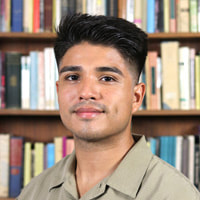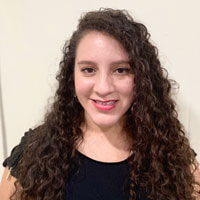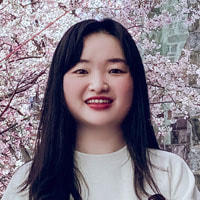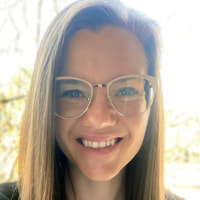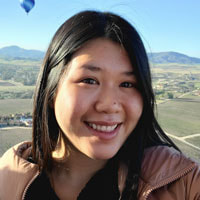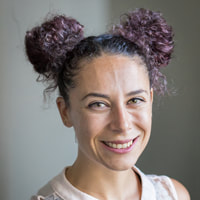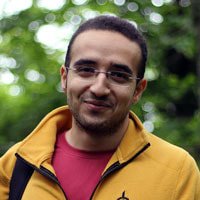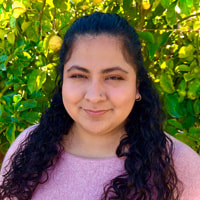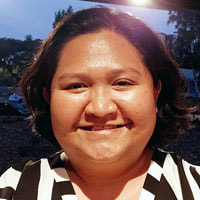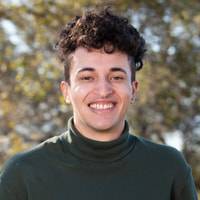Meet the new Ph.D. in Education students –
Welcome, 2022 Cohort!
With research interests as varied as AI in Education to Culturally Biased Standardized Testing, the
2022 Cohort of Ph.D. in Education students are ready to take on the educational system.
2022 Cohort of Ph.D. in Education students are ready to take on the educational system.
|
Area
EPSC Research Interests
K-12 Educator Labor Markets, Teacher and Organizational Effectiveness, Program Evaluation, Causal Inference Vertical Divider
|
Aaron Ainsworth is currently a Ph.D. student in Education Policy and Social Context at the University of California, Irvine School of Education where he studies the K-12 education workforce. He is interested in how educator labor markets respond to both in and out-of-school changes and their implications for the preparation, recruitment, development, effectiveness and retention of educators. To that end, he is interested in partnerships with education stakeholders and novel uses of longitudinal administrative data systems.
Prior to graduate school, Aaron worked as an elementary and middle school teacher in both traditional public and charter schools in Las Vegas, NV. He has degrees in Education Studies and Political Science from Vanderbilt University and a master’s degree in Elementary Curriculum & Instruction from the University of Nevada, Las Vegas. |
|
Area
EPSC Research Interests
Early Care and Education Policy, Special Education Policy, Educational Equity, Causal Inference Vertical Divider
|
Nick Ainsworth is a current Ph.D. student in the School of Education at the University of California, Irvine specializing in the area of Education Policy and Social Context (EPSC). He is broadly interested in early care and education policy as well as special education. In particular, Nick is interested in studying how policies shape access to and outcomes from participating in high-quality early life interventions (care, education, etc.), with a particular focus on children growing up in poverty and students with disabilities or developmental delays.
Prior to attending UC Irvine, Nick was a K-2 special education teacher in Las Vegas, NV. He received his master’s degree in Special Education from the University of Nevada, Las Vegas and his bachelor’s degree in Political Science and Education from Vanderbilt University. |
|
Area
TLEI Research Interests
Learning through the Arts, Out-of-School Learning, Maker Culture Vertical Divider
|
आकृति (Aakriti) belongs to an ethnic group called गढ़वाली (Garhwali) based out of the Himalayan region in India. She grew up in a city called Dehradun and traveled across India for her studies and work. She received her Bachelor's degree in Science from Garhwal University and a certificate in Children’s book illustration. She worked with a rural developmental organization, Gram Vikas and an alternative art school called Poorna Learning Center, designing community based education programs. Her own cultural context highly inspires her work around the acknowledgement and the importance of community in child’s education.
Prior to joining the Ph.D. program at School of Education in UCI, Aakriti finished her Masters degree in Education from Azim Premji University. She currently studies the role of community in child's education through arts based research methods. And in her free time she likes to stitch, knit, cook, do watercolor paintings or take long walks. |
|
Area
TLEI Research Interests
Educational Technology; AI and Education; Learning Analytics Vertical Divider
|
Zhenyao Cai received her B.A. in Computer Science and Art History from Smith College, and M.A. in Educational Technology from Teachers College, Columbia University. Her multidisciplinary academic training shaped her interest in educational technologies, AI education, learning analytics, and out-of-school education.
Her previous research projects involved maker education, online collaborative discussion, AI literacy, and AR and embodied learning. Currently, she is working on a citizen science project, aiming to investigate possible ways to involve novices in scientific literature search and motivate them in STEM learning. In the long term, she wants to design and build technologies to involve broader participants in STEM learning and explorations, and she wants to investigate how the design and interactions these technologies afford can shape and transform learners’ cognitive and affective capabilities. |
|
Area
HDiC Research Interests
STEM Education, Rational Number Learning, Playful Learning, BIPOC communities, Educational Pipeline Vertical Divider
|
Prior to pursuing a Ph.D. in Education, Lourdes Acevedo-Farag earned her B.A. in Sociology and Education and M.Ed. in Urban Education from UCLA. As a Latina, first generation college student originally pursuing a STEM major, she recognized the disparity between the STEM oriented skills she brought compared to that of her more affluent counterparts. She then dedicated herself to learning how to reduce this gap in preparation for STEM fields, which ultimately led her to pursue a career in the classroom. While she taught in a variety of grades throughout her 12 year career as a classroom teacher, having taught middle school math to students who did not identify as “math people, sparked her interest in how students from historically marginalized communities persist through the STEM educational pipeline. Her research interests regard interactive, play- and project-based STEM learning, math identity, persistence, and BIPOC communities. As a doctoral student, Lourdes plans to employ mixed-methods approaches to understand how to create effective interventions that facilitate students’ math identities, positively affecting their persistence through the STEM educational pipeline.
|
|
Area
EPSC Research Interests
Effect of Same-Race Faculty on BIPOC Undergraduate Persistence; Racial Justice; Organizational Change Vertical Divider
|
Daniel Garcia earned his bachelor’s degree in Psychology from UC San Diego and a master’s in Psychological Science from CSU Northridge. His research agenda is focused on the graduation rates of Black, Indigenous, and People of Color (BIPOC) students, BIPOC faculty, the effect of faculty on persistence, racial justice, and organizational change. For example, the graduation rates of BIPOC students continue to lag behind their enrollment rate (i.e., BIPOC enrollment-graduation gap). Moreover, substantial research demonstrates the positive relationship between BIPOC faculty and BIPOC graduation rates, with a dearth in the literature examining the nature of this relationship. Therefore, his current goal is to use qualitative methods to investigate how BIPOC faculty positively affect BIPOC graduation rates. His long-term goal is to become a tenure-track professor and produce scholarship that addresses how institutions can implement sustainable policies that recruit BIPOC faculty more purposefully—instead of fluctuating racial equity initiatives.
|
|
Area
HDiC Research Interests
Bilingualism, Underserved Families, Early Childhood Vertical Divider
|
Mariana Gomez holds a B.A. and M.A. in Child Development from California State University, Los Angeles. Currently, she is a Ph.D. student in the School of Education working with Dr. Elizabeth Peña and Dr. Stephanie Reich.
During her undergraduate studies, Mariana worked as a research assistant investigating the substance use, sexual and educational attitudes of emergent adults advised by Dr. Claudia Kouyoumdjian. During this time, she also worked as part of the GO East LA Initiative, supporting a college-going culture in the East LA community. Additionally, advised by Dr. Jessica Morales-Chicas, Mariana worked with the Verizon Innovative Learning STEM Achievers program that provides STEM programming to underserved middle school students and researched Latinx STEM mentors’ cultural wealth that informs their practices. Mariana also has a background in early childhood education, and in higher education student affairs. As a preschool teacher and director in Southern California, Mariana’s found interest in supporting bilingual skills among underserved families to thrive in education. As a professional in student affairs at California State University, Fullerton, Mariana reaffirmed her passion for educational equity work that promotes college-going culture and career success. Currently, her research looks at the components of context that support bilingual skills among underserved young children. Mariana’s goal is to continue integrating an intersecting identities framework that looks at the assets that underserved families possess for their children’s optimal development. |
|
Area
HDiC Research Interests
Early Education and Development, Early Intervention, Program Evaluation Vertical Divider
|
Siling Guo is a Ph.D. student in the School of Education with a specialization in Human Development in Context (HDiC). Siling seeks to understand how early interventions designed to improve children’s skills or environment will make persistent changes in their learning and developmental outcomes.
Siling’s passion for early education and development led her to earn a master’s degree in Human Development from the University of Pennsylvania’s Graduate School of Education. Past experiences with various educational interventions in rural China, West/North Philadelphia, and Ghana exposed Siling to the links between school-based interventions, child development, and early childhood education policy, especially for underserved children. Siling’s academic work is also built upon her undergraduate pursuits in early childhood education and psychology, during which she gained classroom experience and background as a teacher, researched teacher-child interaction, and designed early education curricula. |
|
Area
HDiC Research Interests
Educational Technology, Early Child Development, Conversational Agents Vertical Divider
|
During her master’s studies, Kunlei developed her research interests in how social and cultural factors shape early child development and the role of educational technology in facilitating child learning. Her commitment to improving children’s early learning outcomes motivated her to pursue a Ph.D. degree in Education at UCI, where she designs and evaluates interactive digital learning experiences to promote young children’s language and STEM learning. Leveraging her research and design skills, Kunlei aims to create enjoyable, accessible, and culturally relevant educational technologies for children with diverse backgrounds.
For more information about Kunlei's research, please visit www.kunleihe.com. |
|
Area
HDiC Research Interests
Early Reading Intervention, Reading Disabilities Vertical Divider
|
Before enrolling at UCI School of Education, Heidi practiced as a school psychologist for six years serving students in preschool through twelfth grade. Heidi’s time as a school psychologist encouraged her to purse a Ph.D. in education to study early literacy interventions. Heidi currently works on a project that provides training and resources targeting literacy instruction for rural elementary school teachers in grades kindergarten through third grade.
|
|
Area
HDiC Research Interests
Language and Literacy Development, Early Intervention, Early Childhood Education, Special Education Vertical Divider
|
Gennie's background is in Birth through Five education and Speech-language pathology.
|
|
Area
EPSC Research Interests
Underrepresented Minority Students' Access, Academic Success, and Retention; Culturally Responsive Higher Education Interventions; Educational Equity Vertical Divider
|
Jenny Lee is a doctoral student in the School of Education specializing in Educational Policy and Social Context. She obtained her Bachelor of Science in Psychology with a minor in Ethnic Studies from California Polytechnic State University.
During her undergraduate career, Jenny investigated factors that impact underrepresented students' academic success in higher education. Her commitment to improve access, academic achievement, and retention rates of historically disadvantaged students inspires her research on culturally responsive higher education interventions. |
|
Area
HDiC Research Interests
Vocabulary, Second Language Acquisition, Reading Comprehension Vertical Divider
|
Julian Levine is a Ph.D. student in the UCI School of Education's HDiC cluster. He is currently conducting research on the Converse to Learn project as a member of the Digital Learning Lab at UCI.
He holds a B.A. in economics (minor in psychology) from UC San Diego and a master’s degree in education (social research methodologies) from UC Berkeley. Julian taught English in South Korea for two and a half years, and has studied various languages including Korean, Spanish, and Japanese. He hopes to conduct research that can contribute to making more people pursue and succeed in language learning. |
|
Area
EPSC Research Interests
Culturally Biased Standardized Testing Vertical Divider
|
Alaria Long has experience teaching culturally diverse 6th graders math in Northern, Kentucky. Also, she was a part of the UCLA-HBCU Initiative/STEER Research Program which influenced her to become a PhD student at UC, Irvine. Specifically, in Educational Policy regarding Culturally Biased Standardized testing, Test Preparation for Minority Students, Improved Curriculum-based Education, and Career Readiness for Marginalized Students. In the future, she would like to become a Superintendent and encourage minorities into College Readiness Programs or work for Test Companies to stimulate cultural equality in standardized assessments.
|
|
Area
HDiC Research Interests
Neurodiverse Cognitive Development, Technology in Education, Cognitive Intervention Vertical Divider
|
Ashley's interest in neurodiverse cognitive development and intervention facilitated her journey as a Ph.D. student in Education at UC Irvine. Today, Ashley aims to examine and develop technology through the lens of education to aid cognitive development in neurodiverse populations.
|
|
Area
TLEI Research Interests
Environmental Education, Sustainability, Equity Vertical Divider
|
Victoria Nguyen graduated from UC Irvine in 2021 with B.A degrees in both Education and Social Ecology as well as two minors in Global Sustainability and Psychological Sciences.
Upon graduating, she continued her work in environmental education as a Recycling Coordinator at Waste Management where she assisted with the implementation and educational outreach of California recycling and food-waste laws. Seeing how the history of environmental education heavily focuses on individual behavior change and often excludes the perspectives and solutions of BIPOC communities, she is pursuing a Ph.D. in Education at UC Irvine specializing in Teaching, Learning, and Educational Improvement (TLEI). Through her research, she hopes to collaborate with K-12 students and undergraduates to collectively take climate action and work toward an equitable and interdisciplinary future in environmental education. |
|
Area
TLEI Research Interests
Online Learning, Computer-Supported-Collaborated-Learning, Learning Analytics Vertical Divider
|
Seehee is a Ph.D. student in the School of Education specializing in Teaching Learning Educational Improvement (TLEI). She received her B.A. in Sociology at UCLA and M.A. in Teaching at USC.
She has gained a strong foundation to instructional practices working in different classrooms, developing and creating skills in using instruction to teach skills to the students. After earning her master's degree she participated in Technology-Enhanced Learning Design (TELD) Lab at Seoul National University and participated in projects in how people learn in online environments. She is interested in and hopes to continue her research in online learning, computer-supported-collaboration-learning, and learning analytics. |
|
Area
TLEI Research Interests
Educational Data Science, AI in Education, Educational Technology, Learning Analytics Vertical Divider
|
Sina Rismanchian is from Isfahan, Iran. His research interests are in the intersection of Computer Science and Education. His focus is on researching how to gain the benefits of computer science and data science to excel K-12 education and to explore educational theories using quantitative methods.
He is currently a first-year Ph.D. student at UC Irvine School of Education with a specialization in Teaching, Learning, and Educational Improvement (TLEI). He received his undergraduate degree in Computer Science and Engineering at Sharif University of Technology in Tehran, Iran. His interest in education comes from his previous educational activities such as teaching math to middle-school students, designing a collaborative educational platform for K-12 students, and co-founding an educational society of university students named Rasta in Iran. He works with Dr. Shayan Doroudi in using quantitative methods to explore learning debates, theories, and models. |
|
Area
HDiC Research Interests
STEM Motivation, STEM Identity, Family and Peer Socialization Vertical Divider
|
Guadalupe is interested in researching how students (K-12, college) motivation and STEM identity are influenced by family and peers, in particular students who belong to groups that have been historically underrepresented in STEM. Overall her goal is to continue to be a part of the research efforts to increase representation in STEM fields and she'd also like to explore issues in educational equity for first-generation college students.
|
|
Area
HDiC Research Interests
Language and Literacy Development, Second Language Writing, Corpus Linguistics Vertical Divider
|
Kayla is a Ph.D. student studying the first language (L1), task type and other writing conditions’ influence on Noun Phrase (NP) Complexity Development in a learner’s second language (L2) writing.
Kayla received her bachelor’s degree in Secondary English Education from Notre Dame of Marbel University, her first master’s degree in English from Ateneo de Davao University in the Philippines, and another master’s degree in General and Applied Linguistics (Advanced, with a university medal) from the Australian National University. Prior to UCI, Kayla conducted different research focusing on mother tongue-multilingual education and using classroom discourse and conversational analyses. At ANU, she became interested in using inferential statistics to answer her language development inquiries. Currently, she’s investigating the NP complexity differences among L1 Groups. In her Ph.D., she hopes to contribute to the discussion on convergent triangulation in the field of corpus linguistics, and build her own L2 English Academic Writing Corpus. |
|
Area
TLEI Research Interests
Participatory Design Research, Co-Design, STEM Learning Vertical Divider
|
Seth is interested in designing STEM learning experiences using participatory design research methods that center the values, desires, and aspirations of the groups that will engage with them. He is advised by Dr. June Ahn and co-advised by Dr. Kylie Peppler.
Seth received a B.A. in Chemistry and a minor in Science and Mathematics Education from the University of California, Berkeley. More recently, he worked as a research assistant at the Concord Consortium and as a research project manager at BSCS Science Learning studying STEM education and the learning sciences. His experiences conducting design-based research and engaging in co-design with youth, informal science educators, science content experts, and researchers have shaped his current research interests. |
|
Area
HDiC Research Interests
Out-of-School-Time Learning; Opportunity Gap; Diversity, Equity, Inclusion, and Racial Justice Vertical Divider
|
Taylor M. Wycoff is a Ph.D. student in UC Irvine’s School of Education specializing in Human Development in Context (HDiC). She has worked in the youth development field for a variety of organizations in a range of roles, including counselor, instructor, and program manager. Prior to joining UCI, Taylor received her M.S. from the University of Utah’s Department of Parks, Recreation, and Tourism where her research focused on access to and inclusion in summer camp programs.
Her current research interests center around out-of-school-time learning, the opportunity gap, and diversity, equity, inclusion, and racial justice in out-of-school-time learning environments. Moving forward, Taylor hopes to engage in community based participatory and mixed-methods research to improve out-of-school-time learning opportunities for historically marginalized youth. |


